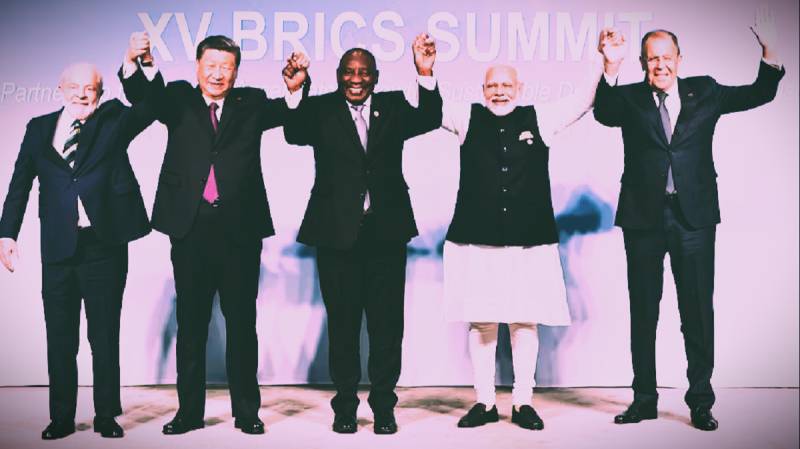
In anticipation of the global financial crisis and an adjustment of power, BRICS countries joined to create a powerful alliance to encourage collaboration, economic development, and change in international institutions. The emergence of BRICS as a collective has sparked intense debate and interest about its predictions for the world in the 21st century.
The countries that are part of the BRICS alliance collaborate on security, counterterrorism, environmental change, and sustainable improvement initiatives based on cooperative working sessions. The alliance promotes a multipolar international order, collaboration, and economic growth. Today, as was revealed during the late August conference in Johannesburg that tills the beginning in January 2024, four more MENA (Middle East and North Africa) nations will join it. In a significant effort to expand its role in the rapidly changing global order, the bloc of major expanding economies—which comprises 40% of the world's population and nearly a quarter of its GDP—sent invitations to Saudi Arabia, Iran, Egypt, and the United Arab Emirates, as well as Argentina and Ethiopia.
Although now, 40 administrations either expressed interest in joining the group, which is considered a counterbalance to the G7 or have spread the word about it. As the Southern bloc desires inclusive multilateral collaboration, further organ enlargement will probably definitely follow.
Because of this, the new membership with MENA (Middle East and North Africa) countries provides greater input to global events and enables them to accept more significant roles of regional and global leadership. Nevertheless, the vast majority of China's energy imports come from Saudi Arabia and the UAE, two of the world's biggest producers of oil and gas. And India recently raised the price of its crude imports from Saudi Arabia.
Credit Goes To Beijing For Inhaling The Big Fish (Washington)
The recent accession of the MENA nations indicates a significant increase for Beijing in its ambitions to impose more political clout in the region. Given that oil has just recently started to be supplied in other currencies beyond dollars, the developed block might change global economic dynamics regarding the oil industry and policy. The expanded group might have an enormous impact on the energy markets if BRICS members move away from dependence on the US currency and ultimately begin trading completely in their native currencies.
However, the BRICS alliance can also provide additional aid for countries struggling under US sanctions, such as Egypt, Ethiopia, and Iran. Iran's threshold is projected to be a political victory that eliminates its diplomatic isolation as an outcome of Western pressure. Therefore, For Beijing, stability in the Gulf is key; bringing two powerful antagonists Iran and Saudi Arabia into the same space is supposed a win.
Thus, since maintaining stability in the Gulf is important for Beijing, putting two powerful rivals, Iran and Saudi Arabia, together is thought to be advantageous and with increasing hostility between the United States and China and the war in Ukraine encouraging Western-imposed sanctions against Russia, the BRICS expansion is presently only dealing with de-dollarisation, but that time is not too far away when the bloc has increasingly become a form of rival strategic alliance.
The presence of US allies like the UAE and Saudi Arabia alongside other nations illustrates how political bias could make the grouping happen to be a platform for preserving the geopolitical agendas of Beijing and Moscow, which might concern, those who are focused on expanding their economic ties with both Eastern and Western partners.

